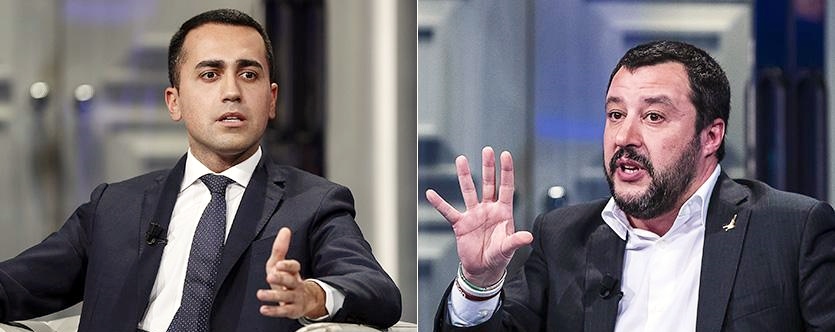Italy’s new government
June 1, 2018 | Expert Insights

Italy’s populist parties have been given the green light to form a coalition government. After days of negotiations and market pressure, after president Sergio Mattarella agreed to a revised slate of ministers.
Background
Present day Italy is known as a vibrant tourist destination in Europe. It is the 3rd-largest national economy in the eurozone, the 8th-largest by nominal GDP in the world. Italy is also the eighth largest exporter in the world. In 2016, its nominal GDP was $1.850 trillion. Italy conducted 59% of its trade with other nations in the European Union.
Politically, Italy has often been plagued by instability in the 20th and the 21st century. After the first world war, the nation was economically weakened. In 1922, the National Fascist Party of Benito Mussolini came to power. This resulted in protectionism and greater control by the government. There have been several dozen governments in the country since the advent of the second world war. The Italian political landscape underwent a seismic shift in the early 1990s when the "mani pulite" ("clean hands") operation exposed corruption at the highest levels of politics and big business. Despite hopes of a change, the old power structures remained largely unchanged. Under the leadership of Silvio Berlusconi, politics was mired by controversies and scandals.
The general elections were called by President Sergio Mattarella in December 2017, after he dissolved the Parliament. They were held in March 2018. The campaigning saw a marked shift towards neo fascism and was built upon the anti-immigration wave. It also saw the return of former leader Silvio Berlusconi as a dominant force in national politics. The centre-right alliance, in which Matteo Salvini's League emerged as the main political force, won a plurality of seats in the Chamber of Deputies and in the Senate. However, no political group or party won an outright majority, resulting in a hung parliament.

Analysis
In March 2018, Italy was plunged into a constitutional crisis as a result of a stand-off between President Sergio Mattarella and its populist leaders. The prime minister-in waiting, Giuseppe Conte has tendered in his resignation after Mattarella refused to accept Conte’s choice for finance minister. Paolo Savona, an 81-year-old former industry minister, is known for harbouring anti-European Union sentiments. At one point, he even called Italy’s entry into the euro a “historic mistake”. The President had already signalled that he was against the nominee.
Italy now looks set to have a League-5-Star government after months of uncertainty which rattled global markets. “All the conditions have been fulfilled for a political, Five Star and League government,” said Luigi Di Maio, the Five Star chief, and Matteo Salvini, the League leader, in a joint statement after a day of talks in Rome.
The populist leaders stepped back their insistence that Paolo Savona, an 81-year-old Eurosceptic, should serve as finance minister. "Maybe finally we have made it, after so many obstacles, attacks, threats and lies," Matteo Salvini, the head of The League, wrote on Facebook shortly after the deal was announced.
Savona is now most likely candidate to become the next European affairs minister. This is considered to be one of the most populist governments in all of Europe in present day. Analysts and observers have noted that they expect clashes in the near future between Italy’s government and the European Union.
The new economics minister, Giovanni Tria, is a mainstream economist at Rome University. Meanwhile, after three months of political deadlock, the markets opened higher than previous weeks after the new government was formed. Italian stocks rose by 2.6%, leading the European pack.
Assessment
Our assessment is that even though Italy finally has a government in place, political strife is likely to continue. The President of the nation is pro-European Union and the government has positioned itself anti-Europe and anti-immigration. This is likely to cause further clashes in the near future. The populist government is likely to be a cause of concern for more liberal governments in Europe.








Comments